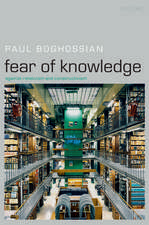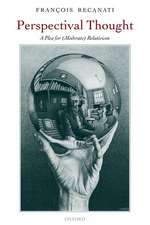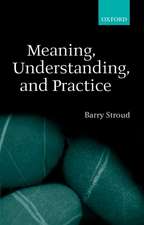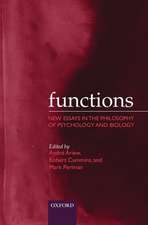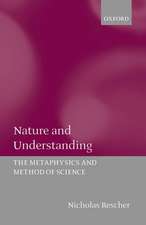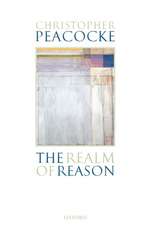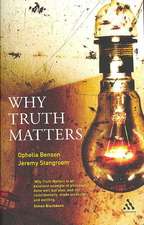Ignorance: (On the Wider Implications of Deficient Knowledge)
Autor Nicholas Rescheren Limba Engleză Paperback – 28 feb 2009
Historically, there has been great deliberation about the limits of human knowledge. Isaac Newton, recognizing his own shortcomings, once described himself as “a boy standing on the seashore . . . whilst the great ocean of truth lay all underscored before me.”
In Ignorance, Nicholas Rescher presents a broad-ranging study that examines the manifestations, consequences, and occasional benefits of ignorance in areas of philosophy, scientific endeavor, and ordinary life. Citing philosophers, theologians, and scientists from Socrates to Steven Hawking, Rescher seeks to uncover the factors that hinder our cognition.
Rescher categorizes ignorance as ontologically grounded (rooted in acts of nature-erasure, chaos, and chance-that prevent fact determination), or epistemically grounded (the inadequacy of our information-securing resources). He then defines the basis of ignorance: inaccessible data; statistical fogs; secreted information; past data that have left no trace; future discoveries; future contingencies; vagrant predicates; and superior intelligences. Such impediments set limits to inquiry and mean that while we can always extend our existing knowledge-variability here is infinite-there are things that we will never know.
Cognitive finitude also hinders our ability to assimilate more than a certain number of facts. We may acquire additional information, but lack the facility to interpret it. More information does not always increase knowledge; it may point us further down the path toward an erroneous conclusion. In light of these deficiencies, Rescher looks to the role of computers in solving problems and expanding our knowledge base, but finds limits to their reasoning capacity.
As Rescher's comprehensive study concludes, ignorance itself is a fertile topic for knowledge, and recognizing the boundaries of our comprehension is where wisdom begins.
In Ignorance, Nicholas Rescher presents a broad-ranging study that examines the manifestations, consequences, and occasional benefits of ignorance in areas of philosophy, scientific endeavor, and ordinary life. Citing philosophers, theologians, and scientists from Socrates to Steven Hawking, Rescher seeks to uncover the factors that hinder our cognition.
Rescher categorizes ignorance as ontologically grounded (rooted in acts of nature-erasure, chaos, and chance-that prevent fact determination), or epistemically grounded (the inadequacy of our information-securing resources). He then defines the basis of ignorance: inaccessible data; statistical fogs; secreted information; past data that have left no trace; future discoveries; future contingencies; vagrant predicates; and superior intelligences. Such impediments set limits to inquiry and mean that while we can always extend our existing knowledge-variability here is infinite-there are things that we will never know.
Cognitive finitude also hinders our ability to assimilate more than a certain number of facts. We may acquire additional information, but lack the facility to interpret it. More information does not always increase knowledge; it may point us further down the path toward an erroneous conclusion. In light of these deficiencies, Rescher looks to the role of computers in solving problems and expanding our knowledge base, but finds limits to their reasoning capacity.
As Rescher's comprehensive study concludes, ignorance itself is a fertile topic for knowledge, and recognizing the boundaries of our comprehension is where wisdom begins.
Preț: 345.95 lei
Nou
Puncte Express: 519
Preț estimativ în valută:
66.22€ • 71.95$ • 55.66£
66.22€ • 71.95$ • 55.66£
Carte tipărită la comandă
Livrare economică 21 aprilie-05 mai
Preluare comenzi: 021 569.72.76
Specificații
ISBN-13: 9780822960140
ISBN-10: 0822960141
Pagini: 160
Dimensiuni: 140 x 210 x 15 mm
Greutate: 0.2 kg
Ediția:2
Editura: University of Pittsburgh Press
Colecția University of Pittsburgh Press
ISBN-10: 0822960141
Pagini: 160
Dimensiuni: 140 x 210 x 15 mm
Greutate: 0.2 kg
Ediția:2
Editura: University of Pittsburgh Press
Colecția University of Pittsburgh Press
Recenzii
“At eighty, Nicholas Rescher continues to be an American philosophical treasure. His latest work, Ignorance, is a wide-ranging but thorough-indeed, exhaustive-analysis of the varieties of ignorance and the implications thereof. Along the way, considerations are given to not just ordinary types of deficient knowledge, but also the elements of ignorance as limits to scientific knowledge. Rescher's work opens up new perspectives in a woefully understudied but major field in epistemology. It will be required reading for everyone concerned with understanding the anatomy of knowledge.”
—George Gale, University of Missouri-Kansas City
—George Gale, University of Missouri-Kansas City
“The cumulative effect of Rescher's examination is the conclusion that our understanding of ignorance may be more important in a practical sense than our efforts to understand or define knowledge. The many reasons that lead Rescher and us to that conclusion are ultimately pragmatic, reaffirming once again that he is our most important living pragmatist. This is a must-read for anyone interested in escaping from the standard contemporary approaches to epistemology.”
—Joseph C. Pitt, Virginia Tech
—Joseph C. Pitt, Virginia Tech
“Rescher has written an exciting and provocative book that will be of interest to epistemologists and philosophers of science alike. He successfully combines the spirit of Socrates with the earthiness of Peirce.”
—Metascience
—Metascience
Notă biografică
Nicholas Rescher is Distinguished University Professor of Philosophy at the University of Pittsburgh and co-chairman of the Center for Philosophy of Science. A member of the American Academy of Arts and Sciences, he has served as president of the Eastern Division of the American Philosophical Association, the Leibniz Society of North America, the Charles S. Peirce Society, the American Catholic Philosophical Association, and the Metaphysical Society of America. Rescher is the author or editor of more than one hundred books, including Ignorance (On the Wider Implications of Deficient Knowledge), Philosophical Inquiries: An Introduction to Problems of Philosophy, and A Journey through Philosophy in 101 Anecdotes.
Descriere
In Ignorance, Rescher presents a broad-ranging study that examines the manifestations, consequences, and occasional benefits of ignorance in areas of philosophy, scientific endeavor, and ordinary life.




